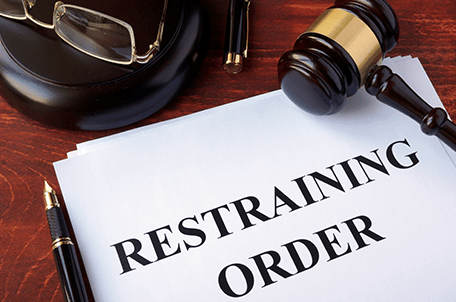In New Jersey, a Final Restraining Order (FRO) does not expire. It is permanent.
If the defendant wants the FRO to cease affecting their lives it must be the defendant that requests from the court either the modification or the removal of the FRO.
Domestic violence laws in other states include what is referred to as a sunset provision.
Essentially, domestic violence protection orders are given an expiration date when they are issued. The court requires the plaintiff to return to the court and justify continuing the order after its set expiration date. This is important to consider, as the difference between placing the effort and costs of petitioning the court is placed on different parties under each system. Under New Jersey’s system, these costs are placed onto the Defendant. However, in other states the costs are placed upon the Plaintiff that originally sought the order.For example, in California, a domestic violence restraining order is issued for a period of a maximum of five years. At the time of expiration, the order may be renewed if the Plaintiff makes a timely request. The Plaintiff may request an additional five years or request that the order be made permanent without a showing of any further incidents of domestic violence since the original order. If no expiration date is placed upon the order it is valid for three years from the date it was issued. (Ann. Cal. Fam. Code §6345).In New York, a domestic violence order of protection will last for two years but may be extended for good cause shown by the plaintiff or consent from both parties. (NY Fam Ct. Act §842).
Do violations of FRO’s carry any potential jail time?New Jersey’s current law gives a lifelong punishment for committing domestic violence. Any violation of an FRO is considered a criminal offense and can result in a jail sentence (N.J.S.A. 2C:29-9). Additionally, if the first violation does not result in a jail sentence, the second violation carries a mandatory 30 days in jail. (N.J.S.A 2C:2-30). Further, any alleged violation, regardless of if said violation actually occurred or not, requires and a mandatory arrest. (N.J.S.A. 2C:25-31).
How does an FRO affect the restrained party’s life and future?
FROs can also impact the defendant’s life in more ways than creating a criminal record. They can prevent the defendant from obtaining certain employment or professional licenses, housing, scholarships, school admission, etc. Under the New Jersey Uniform Enforcement Act, licensing boards can investigate the individuals they grant licenses to. If the board so chooses, they can refuse to admit a person to a licensing exam, refuse to issue a license, suspend or revoke a board issues license if the licensee has been convicted or engaged in acts constituting any crime or offense involving moral turpitude, meaning that the act or behavior being punished gravely violates the accepted standards of the community. (N.J.S.A. 45:1-21). A conviction in this situation can be a guilty plea, a judgment of conviction, or any other judgement of alleged criminal activity.
The New Jersey Uniform Enforcement Act applies to many professional boards,
including but not limited to accountancy, architects, dentistry, engineers, marriage and family therapists, medical examiners, nursing, optometrists, pharmacy, real estate commission, court reporting, veterinary medical examiners, and chiropractic examiners. Being the defendant in a case the ends in an FRO being issued can have a significant impact on the defendant’s life and livelihood.
The potential lifetime burdens on the restrained party bound by the FRO can be great. New Jersey may alter their laws in the future, but for now defendants need to be aware of how great an effect a conviction of domestic violence could have on their future. Having experienced representation for the duration of a domestic violence case for the accused can be invaluable to protect interests the defendant may not even know they have.





